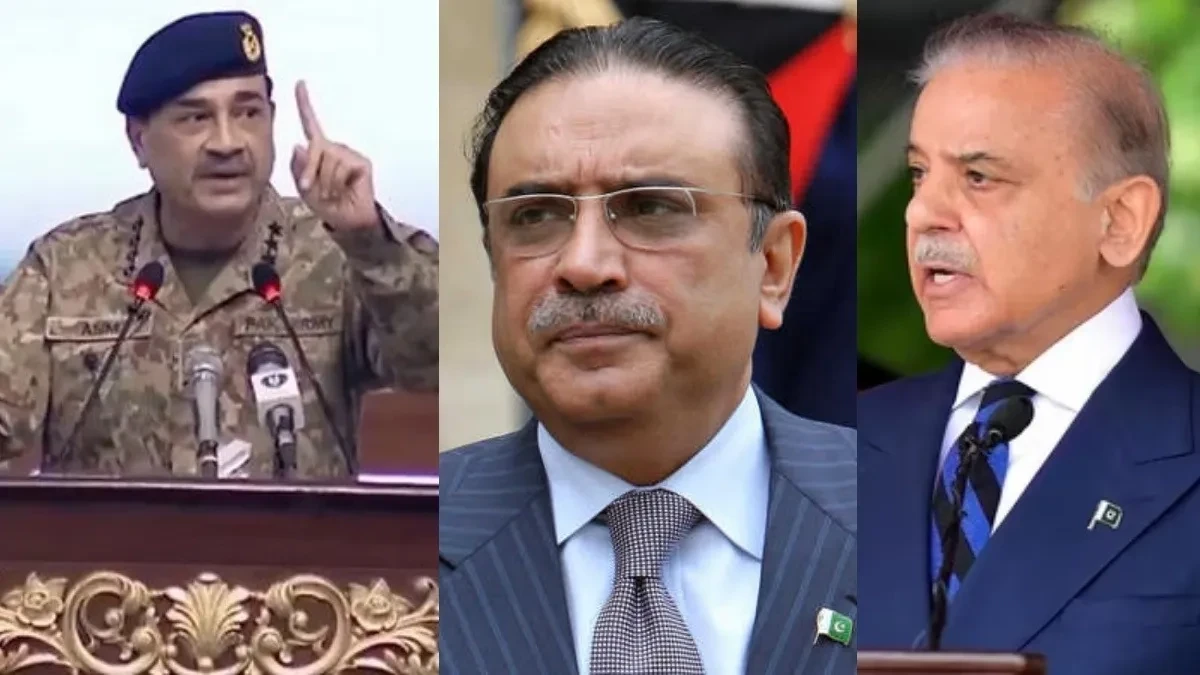In recent days, Pakistan’s political landscape has been roiled by rumours suggesting that President Asif Ali Zardari might be forced out of office, potentially paving the way for Army Chief Field Marshal Asim Munir to assume the presidency.
This speculation gained momentum amid reports of possible constitutional amendments and alleged behind-the-scenes maneuvering. However, the country’s top political and security officials have moved swiftly to quash these narratives.
Pakistan Interior Minister Mohsin Naqvi categorically dismissed the rumors, stating there has been “no discussion, nor does any such idea exist” regarding Zardari’s resignation or Munir’s supposed presidential ambitions. He attributed the rumours to a “malicious campaign” orchestrated by hostile actors and reaffirmed the strong relationship between the president and the military leadership.
PPP Secretary General Nayyar Hussain called the rumours as “baseless” and emphasised that the federal government cannot function without the PPP’s support. He insisted that Zardari is the “duly elected president” and integral to the system’s stability.
Per media reports, Irfan Siddiqui, a close aide to Prime Minister Shahbaz Sharif, also rejected the speculation, asserting that “no such suggestion is under consideration at any level.”
Historical Context: Military Coups and Civilian Displacements
Pakistan’s political history is marked by repeated military interventions, with army generals often displacing elected leaders. Below is a chronology of major coups and military-led replacements:
1958: Pakistan witnessed its first military coup when President Iskander Mirza was ousted by General Ayub Khan, setting a precedent for direct military involvement in governance.
This pattern continued in 1969, as President Ayub Khan himself was compelled to resign under pressure, paving the way for General Yahya Khan’s rule.
The cycle of military dominance was further entrenched in 1977, when Prime Minister Zulfikar Ali Bhutto was overthrown in a coup led by General Zia-ul-Haq.
The most recent major intervention occurred in 1999, when Prime Minister Nawaz Sharif was deposed by General Pervez Musharraf.
The Common Pattern
In each case, the military justified intervention by citing political instability, corruption or threats to national security.
Generals often assumed direct control, either as president or chief martial law administrator, sidelining civilian institutions.
Even during periods of civilian rule, the military has maintained significant influence over foreign policy, security, and internal governance.
The All-Powerful Military
While the latest rumours about Zardari and Munir have been denied, their very existence reflects a persistent reality: the military’s central role in Pakistan’s power structure. The country’s history has conditioned both the public and political elite to expect, and even anticipate, the possibility of military intervention during times of crisis or uncertainty.
The Crux
The denial of coup rumours is a positive signal, but the underlying dynamics remain unchanged. Until civilian institutions are robust enough to command unquestioned legitimacy in Pakistan, the specter of military intervention will continue to haunt Pakistan’s democracy, shaping both its politics and its public imagination in the days and years to come.
